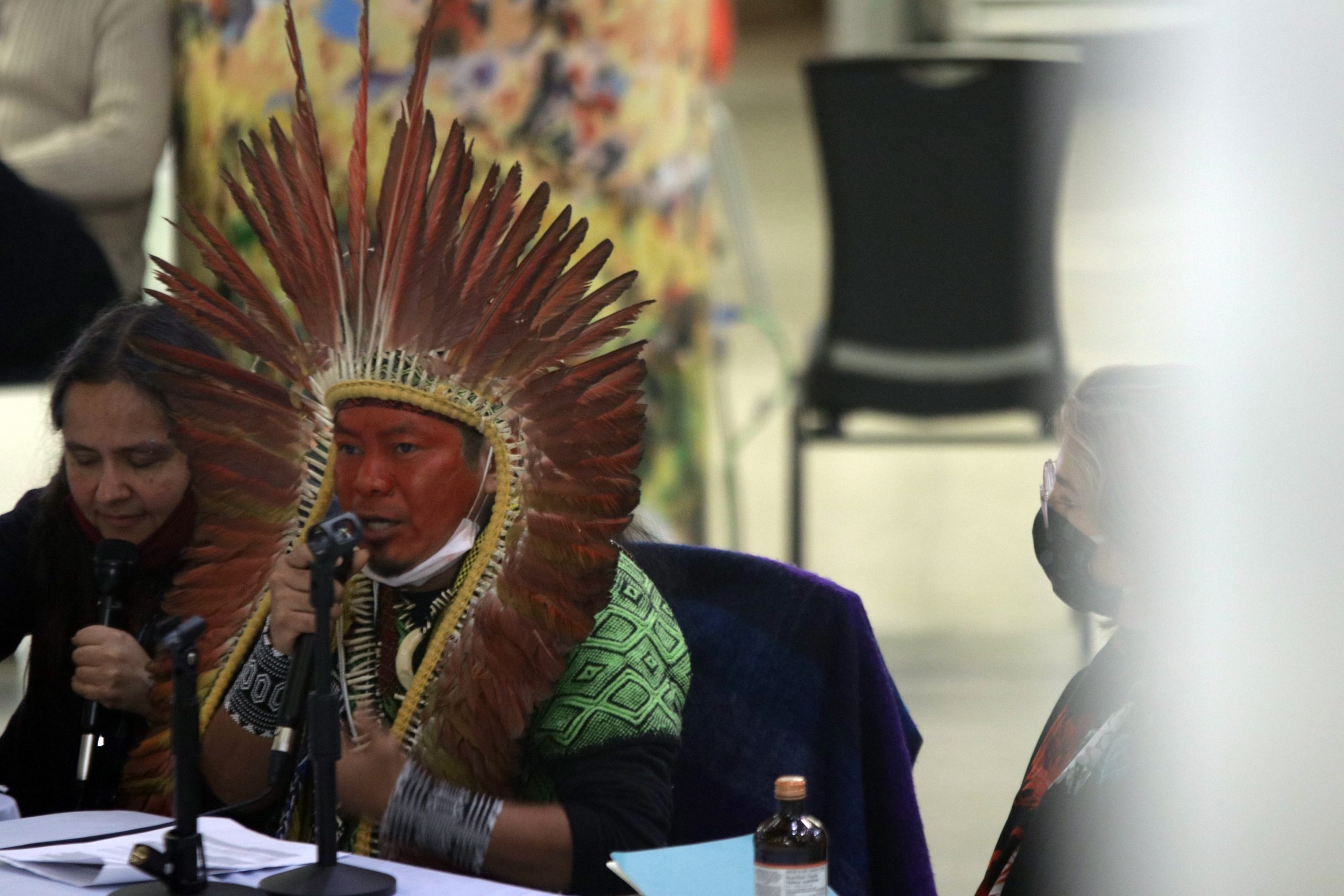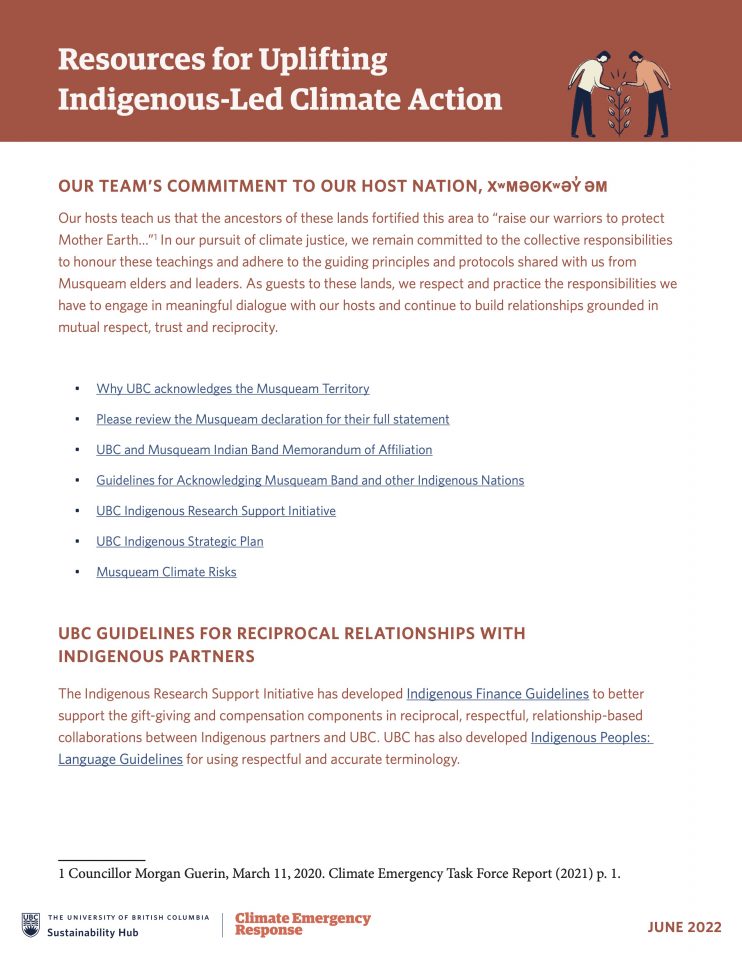
Many Indigenous communities are on the frontlines of the climate crisis. Show solidarity for and uplift Indigenous-led climate action.
Encourage your unit to go through the Indigenous Strategic Plan (ISP) Self – Assessment Tool
Learn about and get involved with the Homegrown Climate Justice project
Show your support for Indigenous self-determination and climate leadership through the First Nations Climate Initiative
Learn more about our team’s commitment to its Host Nation, xʷməθkʷəy̓əm (Musqueam), UBC guidelines for reciprocal relationships with Indigenous Partners, and learning and un-learning resources to reflect and act on.
Dialogue from the Margins comes from the collaborative efforts of UBC Sustainability and Health Promotion & Education (UBC Wellness Centre) in fostering safe spaces where IBPOC students can connect on topics relating to wellbeing and climate justice.

The growing climate emergency has prompted us to reflect on our understanding and approach to living sustainably within the limits of our planet. Can we re-imagine the ways of being and relating to each other and our waters that transform conflict into growth? What are the stories of transformation that will support the creation of new (and re-newed) pathways for sustainability and climate justice? Three Indigenous scholars – Dr. Danielle Ignace, Dr. Shandin Pete and Daqualama (Jocelyn Joe-Strack) – opened our circle in search of the stories that can help us restore and re-story our world and our relationships with it.
.

This document provides a reflective summary of the Abundance of Light event held at UBC Farm on June 22, 2022. It focuses on themes of learning, unlearning, and practicing being good relatives in the context of climate leadership. The event highlights the importance of cultural safety, ethical space, and community agreements for fostering a supportive environment. Participants engage in teachings on humility, care, and connection for climate justice, with an emphasis on dismantling the infrastructure of policing Indigenous lands.

This summary document presents a comprehensive overview of the “Harvest of Abundance” event, which delved into the re-imagination of wealth in the context of climate justice. It underscores the pivotal role of relationships, storytelling, and cultural traditions in addressing environmental issues. The gathering aimed to broaden perspectives on climate justice through meaningful dialogue and shared narratives, emphasizing the interconnectedness of environmental sustainability and cultural heritage.


